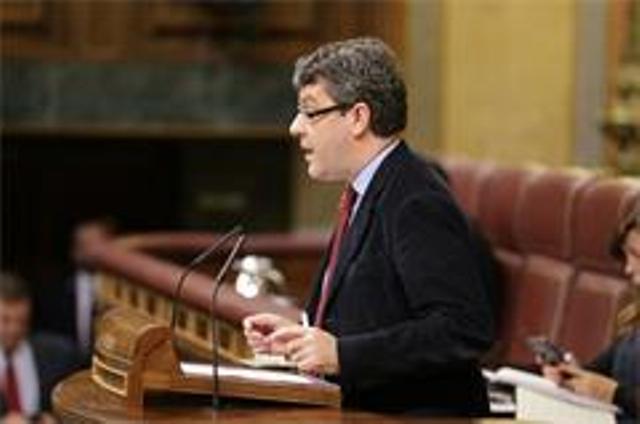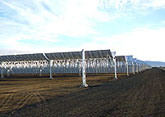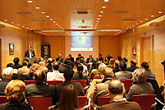Sara Pizzinato, head of Greenpeace Energy Campaign, in this article asks you to make an effort at that time of the day when you sit on the sofa after a long working day and turn on your tablet or your TV to see what´s on and that you take a pause for thought on what you are setting into motion when you push the button. Are all ICTs just as sustainable?
You probably have not taken the pause to think that when you are watching your favorite series, a complete mechanism lies behind that needs an enormous amount of energy … and, in general, it is not renewable energy.
If the Internet were a country, it would be the sixth in the world in energy consumption. A large part of this is due to data centers, which are becoming larger since our electronic devices increasingly delegate their computing and storage capacity in the cloud.
The IT industry consumed 7% of the world’s electricity in 2012, an amount that will grow and even is believed to be reaching 12% in 2017, as will global traffic on the Internet. Video streaming accounted for 63% of global Internet traffic in 2015 and according to Cisco Network Traffic Forecast 2016 it is projected to account for about 80% of traffic in 2020.
Every day millions of users connect with Netflix, for example, without knowing that every time we press the play button we are helping tons of coal to be burnt. Retransmitting one hour of video a week uses, in a year, more energy than two efficient new refrigerators. It is crucial that this energy be renewable.
«Every time we press the play button we are helping tons of coal to be burnt. Retransmitting one hour of video a week uses, in a year, more energy than two efficient new refrigerators. It is crucial that this energy be renewable”
Netflix has one of the largest data footprint of all the companies analyzed on our report «Clicking Clean: Who wins the race to create a green Internet? 2017 «in which we have traced the energy footprints of the largest operators in the largest data centers and of nearly 70 of the most popular sites and applications in the world.
The company accounts for one-third of the Internet traffic in North America and has already taken over peak traffic in most of the countries where it has just been released. In this way it contributes significantly to the global demand for video streaming data. In 2015 the company announced that it intended to completely alleviate its carbon footprint.
However, our detailed examination suggests that Netflix is probably only considering paying to offset its carbon emissions or buying renewable energy certificates with no guarantee that they will be associated with actual green electricity transactions. If so, this would be a patch and would have no effect on investment in renewable energy.
«Nearly 20 technology companies have already committed to using 100% of their energy from renewable sources and the results are already being seen. The direct purchase of renewable energy by companies in the United States has increased substantially since 2010 “.
Nearly 20 technology companies have already committed to using 100% of their energy from renewable sources and the results are already being seen. The direct purchase of renewable energy by companies in the United States has increased substantially since 2010, and in 2015 alone it reached 3.4 GW. More than two-thirds of this volume is attributed to contracts for the purchase of renewable electricity from the leading Internet companies.
The way we build and nurture a rapidly growing global digital infrastructure is becoming critical in answering the question of whether we can make the transition to renewables in time to avoid the most dangerous effects of climate change.
This is why we are asking for a step closer to those who are revolutionizing our television concept: to commit to renewables and leave behind the dirty energies.
You can also ask Netflix to listen to us and follow the path of Google, Facebook, Ebay or Apple towards a 100% renewable system.
Sara Pizzinato
Responsible for Greenpeace Energy Campaign
Carlos Sánchez Criado
Publicista por la Universidad Complutense. Director comercial de publicaciones técnicas del sector de la energía durante doce años. Director de Energy News Events, S.L. desde 2012 difundiendo información en Energynews.es, movilidadelectrica.com e hidrogeno-verde.es. Y por supuesto, organizando eventos como VEM, la Feria del Vehículo Eléctrico de Madrid.

























